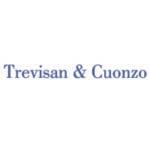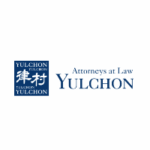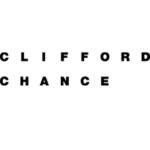-
What types of conduct and causes of action can be relied upon as the basis of a competition damages claim?
Competition damages claims can be based on Articles 101 and 102 of the Treaty on the Functioning of the European Union and EU Regulations 1/2003 and 2015/1589.
Claims can also be brought under the domestic Competition Act (19/2012), that sets out the Portuguese legal framework on competition, and the Private Damages Act (23/2018), that sets out the legal framework applicable to private antitrust claims.
The Competition Act mirrors EU Regulation 1/2003 to a great extent and the provisions that prohibit anti-competitive agreements/concerted practices, and the abuse of dominant position are identical to Articles 101 and 102 of the Treaty on the Functioning of the European Union. The Private Damages Act implemented the EU Damages Directive (2014/104/EU) and applies both to EU competition law and Portuguese competition law.
General substantive rules provided for in the Civil Code and the procedural rules of the Civil Procedure Code will apply when they are not addressed by, or fall outside the scope of, the Private Damages Act.
-
What is required (e.g. in terms of procedural formalities and standard of pleading) in order to commence a competition damages claim?
Under Portuguese law, there are no specific formal requirements for bringing a claim for breach of competition law. The procedure for bringing a claim for a breach of competition law follows the general rules for civil and commercial proceedings.
Claims are filed on the Portuguese e-court platform (called Citius). The claim must:
- identify the parties;
- list the relevant facts;
- state the claimant’s position and what it considers to be the applicable law to the claim;
- include a claim for relief; and
- make an initial evidence request (eg, documentary or witness evidence), which may be amended later in the proceedings.
A court fee is due at the time of filing (except in class actions).
The cause of action should be an infringement of competition law (whether it is an anti-competitive agreement between two or more undertakings or abuse of dominance by a dominant undertaking) that, subject to evidence presented during the proceedings, satisfies the requirements for either contractual or non-contractual liability of the defendant(s).
The claimant will also need to show a nexus/territorial connection of the alleged infringement to Portugal – that is, that the conduct at issue took place in Portugal and/or had an effect on a relevant market or markets in Portugal.
The claim must be substantiated on reasonable grounds, subject to the specific circumstances of each case. Failure to comply with this may give rise to an invitation by the court to perfect the claim or ultimately lead to the claim being dismissed.
The general provisions on standing for civil claims apply to claims for breach of competition law. Accordingly, any legal or natural person that believes it has suffered harm as a result of a competition infringement producing effects in Portugal has standing to bring a claim and seek payment of damages.
The following should be noted in particular:
- Individual/collective claims: Claims for breach of competition law may be brought individually or collectively by means of joint proceedings or class actions – for further details, please refer to the response to question 12.
- Direct/indirect consumer claims: Both direct and indirect consumers and/or end consumers may have standing to bring a claim.
An individual or company wishing to bring a claim for breach of competition law can bring either a standalone action or a follow-on action.
-
What remedies are available to claimants in competition damages claims?
The remedies available for competition litigation in Portugal are the following:
- injunctive relief;
- compensation for losses incurred and damages suffered;
- request for specific performance; and
- penalties for non-performance of the conduct at issue.
A claimant may be awarded more than one type of relief in the same case.
The most common types of remedies sought to date by claimants are requests for compensation for losses incurred and damage suffered as a result of the alleged anti-competitive conduct.
The general rule under Portuguese law is that damages for competition infringements are compensatory in nature and punitive damages are not permitted.
-
What is the measure of damages? To what extent is joint and several liability recognised in competition damages claims? Are there any exceptions (e.g. for leniency applicants)?
Damages for competition law infringements in Portugal are compensatory in nature and quantum can be determined based on the following factors: (i) the actual loss, (ii) loss of profit and (iii) interest until damages are paid.
The process of quantifying damages in actions for breach of competition law can prove complex and it may be extremely difficult or even impossible to assess the exact amount of damage in any given case. In such circumstances, the court may the determine the amount of damages on the basis of the rules of equity (based on the evidence produced in the case).
Where several undertakings infringe competition rules jointly, they are jointly and severally liable for paying compensation for any damages.
Under the Private Damages Act, an immunity recipient is jointly and severally liable in relation to its direct or indirect purchasers/providers only. The immunity recipient is only responsible for providing additional compensation if the other injured parties cannot obtain full compensation from any other infringing undertakings. Furthermore, the amount to be paid as a right of recourse by the immunity recipient cannot exceed the amount of damage that the immunity recipient has caused to its direct or indirect purchasers/providers.
-
What are the relevant limitation periods for competition damages claims? How can they be suspended or interrupted?
The general rule under the Private Damages Act is that once the infringement has ceased, injured parties have a period of five years to bring a claim. This period only starts counting after the end of the infringement and begins to run from the moment the claimant becomes aware (or it can be assumed that it has become aware) of each of the following elements: (i) the infringement, (ii) the identity of the person responsible for the infringement and (iii) the existence of the damage.
Prior to the entry into force of the Damages Directive and the Private Damages Act, the limitation period for bringing claims for breach of competition law based on tort liability was three years.
The above is without prejudice to the general twenty-year limitation period provided for under Portuguese Civil Code, that beings to run from the event that caused harm. This means that the claim will be time-barred when any of the limitation periods referred to have elapsed. The limitation period for claims for breach of competition law based on contractual liability is also twenty years.
The limitation period is suspended if a competition authority brings an investigation concerning the infringement to which the claim for damages relates. This suspension will not end until one year after:
- the infringement has been established by a final decision of a competition authority or by a court decision that has become final; and/or
- the proceedings are otherwise concluded;
- for parties that participate or are represented in alternative dispute resolution proceedings, for as long as such proceedings continue.
The limitation period is interrupted with service or notification on the alleged infringer of any acts with the express intention to exercise the right of action, namely acts requesting the access to evidence before bringing an action for damages or applying for interim measures. In this case, the relevant time limit will be ‘reset’.
-
Which local courts and/or tribunals deal with competition damages claims?
The main court for competition law claims is the Competition, Regulation and Supervision Court. This is a subject-matter specialist court that was established in 2012.1
The Competition Court is the court with competence for questions concerning the appeal, review and enforcement of decisions taken by the Portuguese Competition Authority. The Competition Court is also competent in respect of:
- actions exclusively based on breaches of competition law;
- actions aimed at exercising the right of recourse between co-infringers of competition law violations; and
- requests for access to evidence relating to such actions.
Appeals of decisions of the Competition Court in competition claims are heard by the Lisbon Court of Appeal. The Lisbon Court of Appeal has a specialist chamber that hears competition cases.
Claims for breaches of competition law can also be heard in civil courts, if the claim is not exclusively based on competition law, and/or in arbitral tribunals.
Footnote(s):
1 This Court is also competent for claims not related with competition law (economic/regulatory matters) and the judges that sit on this Court are drawn from a general pool of judges and do not need to be competition law specialists.
-
How does the court determine whether it has jurisdiction over a competition damages claim?
International jurisdiction of the Portuguese courts must be established under:
- the EU rules on jurisdiction rules for civil and commercial matters (which includes competition damages actions) as set out in the Recast Brussels Regulation;
- any other applicable international treaties; or
- the internal rules that attribute international jurisdiction to Portuguese courts as set out in the Civil Procedure Code.
The core jurisdictional provision under the Recast Brussels Regulation provides that a claim should be brought in the courts of the EU member state where the defendant is domiciled. There are two special jurisdictional provisions that apply to competition damages claims:
- In a tort claim, a claimant may bring an action in the courts of a Member State where the harmful event occurred or may occur.
- Where there are multiple defendants domiciled in different Member States, a claimant can opt to bring a claim in the courts of a Member State where one of those defendants is domiciled, provided that the claims are so closely connected that it is expedient to hear and determine them together to avoid the risk of irreconcilable judgments resulting from separate proceedings.
In cases where the Recast Brussels Regulation’s jurisdictional rules or the rules contained in any other international treaty are not applicable, the domestic rules on jurisdiction set out in the Civil Procedure Code will apply.
As to the jurisdiction of the Competition Court please refer to the response to question 6.
-
How does the court determine what law will apply to the competition damages claim?
The law applicable to tort obligations is established under the Rome II Regulation. The applicable law for contractual obligations is established under the Rome I Regulation.
Where neither the Rome II or Rome I Regulations nor any other international agreement applies, national rules on conflicts of law or on the determination of the applicable law will apply.
It is for the party seeking to rely on foreign law to demonstrate the existence and content of the provisions on which it relies.
The above is without prejudice to the parties’ choice of applicable law, to the extent permissible.
Regarding national law, the Competition Act (19/2012) sets out the Portuguese legal framework on competition and the Private Damages Act (23/2018) sets out the legal framework applicable to private antitrust claims.
-
What is the applicable standard of proof?
The standard of proof in competition litigation is the balance of probabilities.
In general terms, the burden of proving a fact lies with the party that alleges it. This is without prejudice to presumptions provided for by law (for examples of presumptions please see the response to question 10).
-
To what extent are local courts bound by the infringement decisions of (domestic or foreign) competition authorities?
A final decision issued by the Portuguese Competition Authority or by a Portuguese appeal court constitutes an irrebuttable presumption of the underlying infringement. This presumption covers the nature of the infringement and its material, temporal and territorial scope, as ultimately determined by the Portuguese Competition Authority or appeal court. Equally, a Portuguese court is prevented from taking decisions that would conflict with an infringement decision by the European Commission.
According to the Private Damages Act, a final decision issued by a different Member State’s competition authority or appeal court constitutes a rebuttable presumption of the underlying infringement being alleged by a claimant.
-
To what extent can a private damages action proceed while related public enforcement action is pending? Is there a procedure permitting enforcers to stay a private action while the public enforcement action is pending?
Private enforcement proceedings can be brought in parallel to public enforcement.
In such circumstances, there are mechanisms for staying the claim parallel to public enforcement proceedings:
- Pursuant to EU Regulation 1/2003 (Article 16(1)), a Portuguese court is prevented from taking decisions that would conflict with a decision of the European Commission. This means that a Portuguese court should assess whether it is necessary to stay proceedings pending the outcome of the European Commission’s decision or any appeals from decisions following European Commission decisions.
- Likewise, under the Private Damages Act, a Portuguese court may stay proceedings pending the conclusion of an ongoing investigation or final decision by the Portuguese Competition Authority or a final judgment on appeal
These mechanisms have already been put in place by the Competition Court in certain cases in which the court suspended follow-on class action proceedings until all appeals against PCA’s infringement decisions have been exhausted.
-
What, if any, mechanisms are available to aggregate competition damages claims (e.g. class actions, assignment/claims vehicles, or consolidation of claims through case management)? What, if any, threshold criteria have to be met?
Portugal has a specific procedural mechanism for class actions whereby an individual or group of individuals, associations, foundations, local authorities or, in respect of certain matters, the public prosecutor and the Directorate-General for Consumers may bring an action in representation of a group of people. Class actions are expressly provided for in the Portuguese Constitution and their general legal framework is set out in the Class Actions Act (83/95). The Private Damages Act (23/2018) contains specific provisions for private enforcement class actions.
The following requirements must be met for an association or foundation to be entitled to bring a class action on behalf of a group of citizens:
- It must be a legal person with full legal capacity;
- The interests involved in the class action must be specifically covered by the claimant’s purpose as provided by its articles of association; and
- It cannot engage in any kind of activity that competes with companies or self-employed professionals.
Associations of undertakings whose members have been harmed by an infringement of competition law may also bring proceedings, even if their statutory purpose does not include the defence of competition.
Outside the scope of class actions, Portuguese law also allows for multi-party/joint proceedings – i.e., separate proceedings that are managed and heard together -, in the following situations:
- multiple claimants join their individual claims into one action (joinder of parties);
- two or more existing proceedings have a significant connection between them and are joined with a view to avoiding inconsistent decisions (joinder of actions); or
- there is an assignment of claims to special purpose vehicles, where several individual claims are assigned to a special purpose vehicle that acts as a claimant.
There are no formal limitations on the number of claims or claimants that may be joined in the same proceedings.
-
Are there any defences (e.g. pass on) which are unique to competition damages cases? Which party bears the burden of proof?
Passing on is the most unique defence in competition damages cases in Portugal. The burden of proving that all or part of the overcharge resulting from the infringement was passed on is on the defendant.
Although not unique to competition litigation, other key defences frequently brought in competition damages cases to date in Portugal are the following:
- Expiry of limitation periods;
- Claimant’s lack of standing, especially in class actions where the claim is brought by consumer associations;
- Absence of any infringement of EU and/or domestic competition law in standalone infringement litigation;
- Absence of causation of any damage arising from the conduct at issue in follow-on and standalone litigation; and
- Unlawfulness of the recourse to third-party litigation funding.
-
Is expert evidence permitted in competition litigation, and, if so, how is it used? Is the expert appointed by the court or the parties and what duties do they owe?
Yes, expert evidence is permitted in competition litigation. Expert evidence is typically used to address the existence (or not) of any damages, causation and passing-on. Experts can be presented by any party and/or appointed by the court.
If the court, of its own motion or on application by the parties, decides to request expert evidence, it will first indicate the subject matter to be covered by such evidence and list certain questions to be answered by the expert(s). The court may also decide what data or documentation should be made available for this purpose. The parties are given an opportunity to put forward a position on these issues in advance.
The expert evidence may be carried out by one court-appointed expert or by a panel of three experts: one expert appointed by each party and the third expert appointed by the court.
The appointed expert or panel of experts are required to act diligently and submit the expert report to the court within a deadline set by the court.
Once the expert report is submitted to the court, the parties will have the opportunity to challenge the evidence and/or request clarifications from the expert(s) (which must be provided in writing). If the parties disagree with the expert report submitted to the court, a request can be made for the court to order a second expert report by a different expert or panel of experts. A decision not to grant such request can be appealed.
The parties may also request the testimony of the experts at trial to provide clarifications on the expert report submitted on their behalf. No opinion may be given on the facts of the dispute.
Written expert reports by party-appointed experts are not treated as expert evidence but are instead considered as part of the evidence and pleadings submitted by the relevant party. Written expert reports by party-appointed experts may be filed up to the end of the trial at first instance. These expert reports are usually economic reports on the topics referred to above or legal expert opinions from legal scholars. Such evidence will typically relate to the correct legal interpretation of procedural and substantive law issues, such as limitation, standing, the applicable rules of evidence or causation, constitutional law issues and points of EU law.
-
Describe the trial process. Who is the decision-maker at trial? How is evidence dealt with? Is it written or oral, and what are the rules on cross-examination?
Trials are conducted by a single judge, who is the decision-maker. A court clerk will assist the judge and counsel to the parties will be present at all hearings. The parties (claimants and/or defendants) can also attend trial. The procedure involves mostly oral arguments and witness/expert examination.
The court will first encourage the parties to reach a settlement. If this is not possible, the trial proceeds to the taking of oral evidence. Oral evidence may include the parties or their representatives’ examination, witness evidence and expert evidence.
The parties (or their legal representatives, as applicable) may be questioned regarding facts of which they have first-hand knowledge. These oral statements by the parties may be requested by the party wishing to give its testimony or by the opposing party, or may take place by determination of the court (to obtain a confession). Such facts must be indicated to the court in advance.
Witnesses can be listed in the statement of claim or in the defence or indicated up to 20 days before the trial. Each party can typically call up to ten witnesses. Each witness takes an oath to tell the truth at the beginning of their testimony, under penalty of committing a criminal offence. The witnesses called by the claimant are heard first, followed by witnesses for the defendant. Counsel to the opposing party is entitled to cross-examine the witness but is limited to the subject matter covered by the questions put by the party that the witness was called by. The court may intervene at any time and also question the witness. There is no limitation on the facts or matters on which witnesses testify, other than the relevance to the case and that witness must have first-hand knowledge of the facts covered by their testimony
As referred to above, if the court requests an expert opinion, the parties may ask, or the court may order of its own motion, that the expert appears at the trial to provide clarifications on the expert report.
Once the taking of evidence has been completed, counsel deliver closing statements.
As a rule, the court shall render judgment should within 30 days of the trial, but this time limit is only indicative and is often not complied with by courts.
The trial is recorded by the court’s recording system and the recording is included in the case file.
-
How long does it typically take from commencing proceedings to get to trial? Is there an appeal process? How many levels of appeal are possible?
Competition Court judgments can be appealed to the Lisbon Court of Appeal. The Court of Appeal decides on matters of fact and law.
Court of Appeal judgments can be appealed to the Supreme Court of Justice. Such appeals are limited to points of law.
If the Court of Appeal confirms the judgement handed down by the Competition Court, in principle, an appeal to the Supreme Court of Justice will not be admissible, except in exceptional circumstances, such as in cases of contradictory rulings issued by Courts of Appeal or by the Supreme Court of Justice.
Competition litigation is relatively recent which means there is limited data regarding the length of proceedings. However, our experience is that proceedings can take between two and a half to five and half years from the moment a case is brought until all appeals have been exhausted.
-
Do leniency recipients receive any benefit in the damages litigation context?
As mentioned in the response to question 4, the Private Damages Act provides that an immunity recipient is jointly and severally liable in relation to only its direct or indirect purchasers/providers. The immunity recipient is only responsible for providing additional compensation if the other injured parties cannot obtain full compensation from any other undertakings involved in the infringement. Furthermore, the amount to be paid as a right of recourse by the immunity recipient cannot exceed the amount of damage that the immunity recipient has caused to its direct or indirect purchasers/providers.
The Private Damages Act further provides that national courts cannot order the disclosure of the leniency statements.
-
How does the court approach the assessment of loss in competition damages cases? Are “umbrella effects” recognised? Is any particular economic methodology favoured by the court?
Parties must provide evidence regarding all aspects of their claim/defence, including economic evidence regarding causation and quantum.
As noted in response to question 14, Portuguese courts can request expert evidence, either to analyse the evidence produced by the parties or to provide additional evidence. Such analysis/evidence may relate to the assessment of loss or other economic issues.
Portuguese courts use the European Commission Practical Guide on Quantifying Harm in Actions for Damages Based on Breaches of Article 101 or 102 TFEU to assess the robustness of the economic evidence. This means that economic evidence that follows the methodologies outlined in this document is more likely to be accepted by the Portuguese courts.
With respect to umbrella effects, Portuguese courts are expected to follow CJEU case law, which established that claimants can demand compensation that results from such effects.
-
How is interest calculated in competition damages cases?
Interest accrues regardless of whether the creditor (injured party) has requested the debtor (the infringer) to pay the compensation owed. However, interest will only accrue if the amount (the quantum) of the credit is set, unless the fact that the credit is illiquid is attributable to the debtor. In any event, even if the amount (the quantum) of the credit is not set, interest accrues from the date on which the defendant is served.
-
Can a defendant seek contribution or indemnity from other defendants? On what basis is liability allocated between defendants?
Where several undertakings infringe competition rules jointly, they are jointly and severally liable for paying compensation for any damages. According to the Civil Code, the defendant who pays damages has the right of recourse against the other co-infringers – liability is allocated according to the level of fault of each co-infringer and the consequences arising from that fault. The Civil Code establishes a presumption that co-infringers are equally at fault.
According to the Private Damages Act, the allocation is made according to each co-infringer’s relative responsibility for the harm caused, which is presumed to be equal to their market share. As explained above, the amount to be paid as a right of recourse by the immunity recipient cannot exceed the amount of damage that the immunity recipient has caused to its direct or indirect purchasers/providers.
-
In what circumstances, if any, can a competition damages claim be disposed of (in whole or in part) without a full trial?
As a rule, competition damages claims are decided following a full trial. However, in some cases, no trial is held before the judgment is issued. This may occur, for example, if (i) the case is dismissed on procedural grounds (e.g. lack of standing of one the parties), (ii) all the evidence to be adduced is documentary evidence (which is not common in competition litigation) or (iii) the parties have not requested the taking of any other evidence to be done orally at trial (and the court does not consider it necessary), which is not common either.
A full trial can also be avoided if the parties settle the case. A settlement can be submitted to court for approval, or the parties can just inform the court that they have reached an out-of-court agreement. If the court approves the settlement and/or considers the procedural conditions for a settlement are met, the case will be closed.
As a rule, the court cannot assess the reasonableness of the settlement with the interests of the parties or by make any judgment regarding the fairness of the settlement. This rule is different in class actions – please refer to the response to question 22.
-
What, if any, mechanism is available for the collective settlement of competition damages claims? Can such settlements include parties outside of the jurisdiction?
In Portugal, there is no specific procedure for settlements in the context of competition damages claims. The general rules for settlements in civil claims will apply.
However, in the case of a settlement of a class action, it must be submitted to the court for approval. The public prosecutor is notified of the proposed settlement in order to indicate whether it wishes to exercise its right to substitute the claimant and/or to raise any issues regarding the agreement on the payment of court costs that the parties have reached.
The settlement will be binding on, and enforceable between, the signatories of the settlement. Class members that refuse to enter into the settlement or that have opted out of the proceedings will not be bound by the settlement.
-
What are the rules for disclosure of documents (including documents from the competition authority file or from other third parties)? Are there any exceptions (e.g. on grounds of privilege or confidentiality, or in respect of leniency or settlement materials)?
Unlike in common law jurisdictions, there is no discovery process in Portugal. Portuguese law also does not allow other types of pre-trial investigations, fishing expeditions or indiscriminate requests for the production of evidence. A party to litigation is therefore under no obligation to make available evidence which either supports or undermines its case to the other side, unless it is required to do so by the court.
Notwithstanding the above, both claimants and defendants must indicate the evidence on which they base their factual assertions. In addition, the court may order the production of specific documents at the request of each party.
Production requests are usually made between the pleadings stage and the preliminary hearing, and are subject to the court’s decision. All documents disclosed must be formally submitted in the proceedings and are subject to the adversarial rules. This means that no production orders can be ordered by the court without the opposing party making submissions to the court regarding the production request.
Any such request must pass the applicable legal tests – namely relevance, specification, and proportionality. Pre-litigation disclosure requests must also pass the ‘plausibility of the underlying right’ test. Stringent safeguards to protect privacy sensitive and commercially sensitive information can be put in place where applicable.
The timing of the production of documents is set by the court and may vary according to the type and the number of documents to be produced. Judges are usually receptive to reasonable constraints invoked regarding the production of documents.
The court may also order the production of documents or information of its own motion at any stage of the proceedings.
The court cannot, however, order the disclosure of documents containing leniency statements or settlement submissions (under the prohibition contained in the Private Damages Act), nor documents or information covered by attorney-client privilege.
-
What procedures, if any, are available to protect confidential or proprietary information disclosed during the court process?
As a rule, court proceedings are public. Any party, counsel or anyone else that has a reasonable interest can access the court file.
Proceedings and related information may be kept confidential where disclosure is likely to harm the dignity and/or privacy of private or family life of the persons involved and/or public morality, and/or is necessary to ensure the full effectiveness of the judgment to be given (as in the case of ex parte decisions).
Court hearings – including the trial – are public, except when the judge decides otherwise in order to safeguard the dignity of the persons involved or public morality, or to ensure the orderly conduct of the proceedings.
Safeguards to protect confidential and commercially sensitive documents or information can be requested from the court – for example, in the form of orders to:
- proceedings be conducted in camera;
- sensitive information and/or business secrets from documents/parts of documents be redacted;
- documents be made only available only to the court and the parties to the proceedings and their counsel;
- access be granted to opposing counsel provided a commitment is made to use those documents exclusively for certain purposes;
- a data room be set up for consultation of documents with no permission to download or copy them;
- only excerpts or non-confidential versions be made available;
- consultation by third parties be prevented without court permission; or
- personal data be redacted or encrypted.
Any facts, documents or information obtained in breach of attorney-client privilege will not be admitted as evidence in court proceedings. Correspondence and documents exchanged between lawyers and their clients cannot be seized by the court unless they relate to a criminal offence in proceedings where the counsel is a defendant.
-
Can litigation costs (e.g. legal, expert and court fees) be recovered from the other party? If so, how are costs calculated, and are there any circumstances in which costs recovery can be limited?
The general rule is that the losing party bears all costs associated with the proceedings. These comprise court fees and adverse costs, including the fees paid by the winner to its counsel.
In civil proceedings, including competition damages actions, costs regarding opposing counsel fees are limited to half of the aggregate court fees paid by the parties. However, in the case of class actions, this amount may be fixed by the judge according to the complexity and value of the case. The court may also award costs incurred with lawyer’s fees without limitation if it rules that the other party acted in the proceedings with bad faith.
As a rule, the proportion of costs due to the court and the winning party depends on the ‘share’ of the claim won by that party.
Under the specific class action rules, if the court finds even just partially in favour of the claimant, the claimant will be exempted from court costs. If the claim is totally unsuccessful, claimants will be ordered to pay an amount to be fixed by the court as costs. This amount will range from 10% to 50% of the amounts due in ordinary civil claims.
In determining the specific amount to be paid by an unsuccessful claimant, the court will consider the economic situation of the claimants and the reasons why the claim did not succeed.
In cases where there is more than one claimant and a cost order is rendered by the court, claimants will be jointly and severally liable for payment.
Defendants in class actions must pay court costs, as is the case in any other civil proceedings.
-
Are third parties permitted to fund competition litigation? If so, are there any restrictions on this, and can third party funders be made liable for the other party’s costs? Are lawyers permitted to act on a contingency or conditional fee basis?
Until recently, third-party funding was very rare in Portugal. However, since December 2020, several class actions backed by litigation funding arrangements have been brought before the Portuguese courts.
The Private Enforcement Act has no specific rules that regulate third-party funding of competition litigation and several debates are ongoing regarding the role and intervention of third-party litigation funders. Among other aspects, it is discussed whether third-party funders should be permitted to receive unclaimed damages (i.e., a share of the compensation awarded for damages suffered by others).
While Portugal has implemented the EU Directive on Representative Actions (EU 2020/1828) into domestic law – through Decree-Law 114-A/2023, which entered into force in late 2023 – that implicitly allows class action claimants to resort to litigation funding, these provisions will not directly apply to class actions initiated prior to the entry into force of that law nor to competition cases.
Lawyers are not allowed to act on a contingent fee basis, as contingent fee agreements (i.e., when a lawyer agrees to be paid exclusively dependent on the result of the proceedings) are deontologically prohibited. Differently, success fees (i.e., when only a part of the fees paid to a lawyer are dependent on the result of the proceedings) are allowed. For details regarding the recovery of litigation costs, please refer to the response to question 25.
-
What, in your opinion, are the main obstacles to litigating competition damages claims?
Competition litigation continues to grow in Portugal, with a particular emphasis on large and complex class action claims.
Class actions
Class actions are not a new feature of the Portuguese legal system – the right to bring such actions is constitutionally recognized and an across the board opt-out class actions regime is in place in Portugal for more than 30 years. However, the current regime is not suited to the types of complex claims that are brought in other jurisdictions such as the US, UK and the Netherlands. In particular, Portugal lacks an established culture and mechanisms for certification and judicial gatekeeping, unlike in other jurisdictions, which means that, except when claims are blatantly unviable, it is very easy for a class action to proceed to trial.
This lack of a formal certification stage by the courts has led to Portugal being considered a claimant-friendly jurisdiction, which makes it attractive for complex class action claims. Among the additional factors that contribute to this are the following:
- Anyone can bring a class action
- Class actions are opt-out
- Portuguese court award aggregate damages and unclaimed compensation amounts do not revert back to the defendants
- Third party litigation funding has been generally admitted by Portuguese courts
- The costs associated with bringing class actions are relatively low, as the claimant is exempted from any court costs if the claim is totally or partially upheld – for more details, please refer to the response to question 25.
The main challenge for claimants is that all allegations have to be included in the statement of claim, given that the amendment of pleadings is only admitted in exceptional circumstances.
Besides the absence of the gatekeeping function referred to above, the major challenge for a defendant is that Portugal is a one-shot jurisdiction. This means that a defendant must present all of its procedural and substantive defences in its defence to a claim. This can often place a defendant on the back foot, as the deadlines for submitting a defence are very tight – a domestic defendant will need to respond to a claim within 30 calendar days of service on the last defendant, while a foreign defendant has 60 days to respond from service on the last defendant. As such, Portuguese proceedings are often put at or near the front of a defence strategy for a defendant facing similar/identical claims across jurisdictions. This is because, while in other jurisdictions a defendant may be litigating class certification, in Portugal the same defendant will have to have developed all its arguments on the merits of the case, as well as presenting all the procedural defences.
Competition claims generally
With respect to competition claims more generally, courts often face severe resource constraints and lack access to expert input, such as economic and other expert forensic analysis. These practical limitations can hinder the efficient resolution of claims.
-
What, in your opinion, are likely to be the most significant developments affecting competition litigation in the next five years?
As noted, the competition litigation landscape in Portugal has been evolving rapidly, particularly since December 2020, marked by a significant increase in collective claims, especially in the fields of competition and consumer law. Consumer associations have been at the forefront of this movement, bringing actions against both domestic and multinational companies. Many of these cases mirror strategies and claims already seen in more mature jurisdictions.
A growing number of class actions are follow-on claims, based at least partially on prior infringement decisions. However, these claims frequently attempt to go beyond the scope of the underlying decision. In parallel, there is a noticeable increase in stand-alone actions, where claims are brought independently of any prior administrative or judicial finding of infringement. In this context, disclosure orders – and consequently the volume and the scope of documents disclosed – are also expected to increase, further adding to the procedural and evidentiary complexity of these cases.
Looking ahead, a sustained high volume of both follow-on and stand-alone claims is expected, with new areas emerging as focal points, including data privacy breaches, Big Tech regulation, crypto-related disputes, and litigation under the Digital Markets Act (DMA).
We also expect to see the increase of B2B claims, potentially based on competition infringement, infringements of the DMA (or hybrid claims that invoke both the DMA and Article 102 of the Treaty on the Functioning of the European Union).
Portugal: Competition Litigation
This country-specific Q&A provides an overview of Competition Litigation laws and regulations applicable in Portugal.
-
What types of conduct and causes of action can be relied upon as the basis of a competition damages claim?
-
What is required (e.g. in terms of procedural formalities and standard of pleading) in order to commence a competition damages claim?
-
What remedies are available to claimants in competition damages claims?
-
What is the measure of damages? To what extent is joint and several liability recognised in competition damages claims? Are there any exceptions (e.g. for leniency applicants)?
-
What are the relevant limitation periods for competition damages claims? How can they be suspended or interrupted?
-
Which local courts and/or tribunals deal with competition damages claims?
-
How does the court determine whether it has jurisdiction over a competition damages claim?
-
How does the court determine what law will apply to the competition damages claim?
-
What is the applicable standard of proof?
-
To what extent are local courts bound by the infringement decisions of (domestic or foreign) competition authorities?
-
To what extent can a private damages action proceed while related public enforcement action is pending? Is there a procedure permitting enforcers to stay a private action while the public enforcement action is pending?
-
What, if any, mechanisms are available to aggregate competition damages claims (e.g. class actions, assignment/claims vehicles, or consolidation of claims through case management)? What, if any, threshold criteria have to be met?
-
Are there any defences (e.g. pass on) which are unique to competition damages cases? Which party bears the burden of proof?
-
Is expert evidence permitted in competition litigation, and, if so, how is it used? Is the expert appointed by the court or the parties and what duties do they owe?
-
Describe the trial process. Who is the decision-maker at trial? How is evidence dealt with? Is it written or oral, and what are the rules on cross-examination?
-
How long does it typically take from commencing proceedings to get to trial? Is there an appeal process? How many levels of appeal are possible?
-
Do leniency recipients receive any benefit in the damages litigation context?
-
How does the court approach the assessment of loss in competition damages cases? Are “umbrella effects” recognised? Is any particular economic methodology favoured by the court?
-
How is interest calculated in competition damages cases?
-
Can a defendant seek contribution or indemnity from other defendants? On what basis is liability allocated between defendants?
-
In what circumstances, if any, can a competition damages claim be disposed of (in whole or in part) without a full trial?
-
What, if any, mechanism is available for the collective settlement of competition damages claims? Can such settlements include parties outside of the jurisdiction?
-
What are the rules for disclosure of documents (including documents from the competition authority file or from other third parties)? Are there any exceptions (e.g. on grounds of privilege or confidentiality, or in respect of leniency or settlement materials)?
-
What procedures, if any, are available to protect confidential or proprietary information disclosed during the court process?
-
Can litigation costs (e.g. legal, expert and court fees) be recovered from the other party? If so, how are costs calculated, and are there any circumstances in which costs recovery can be limited?
-
Are third parties permitted to fund competition litigation? If so, are there any restrictions on this, and can third party funders be made liable for the other party’s costs? Are lawyers permitted to act on a contingency or conditional fee basis?
-
What, in your opinion, are the main obstacles to litigating competition damages claims?
-
What, in your opinion, are likely to be the most significant developments affecting competition litigation in the next five years?














